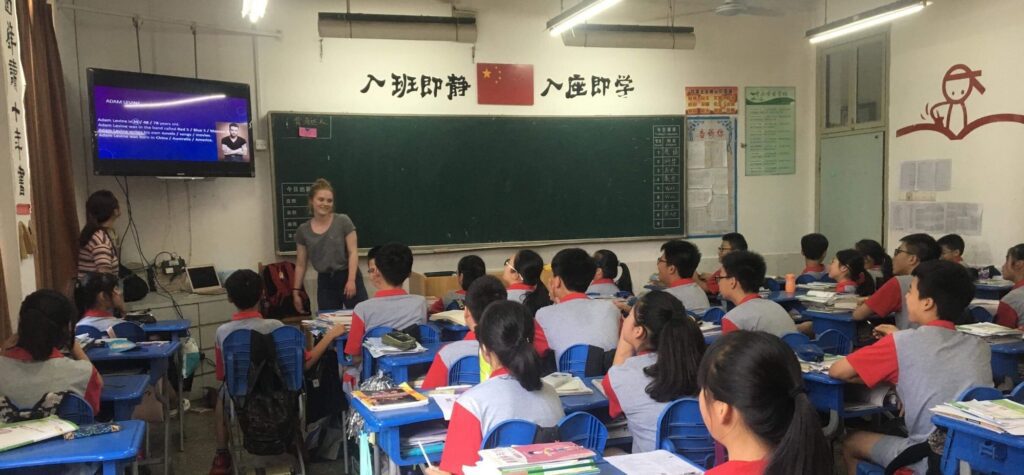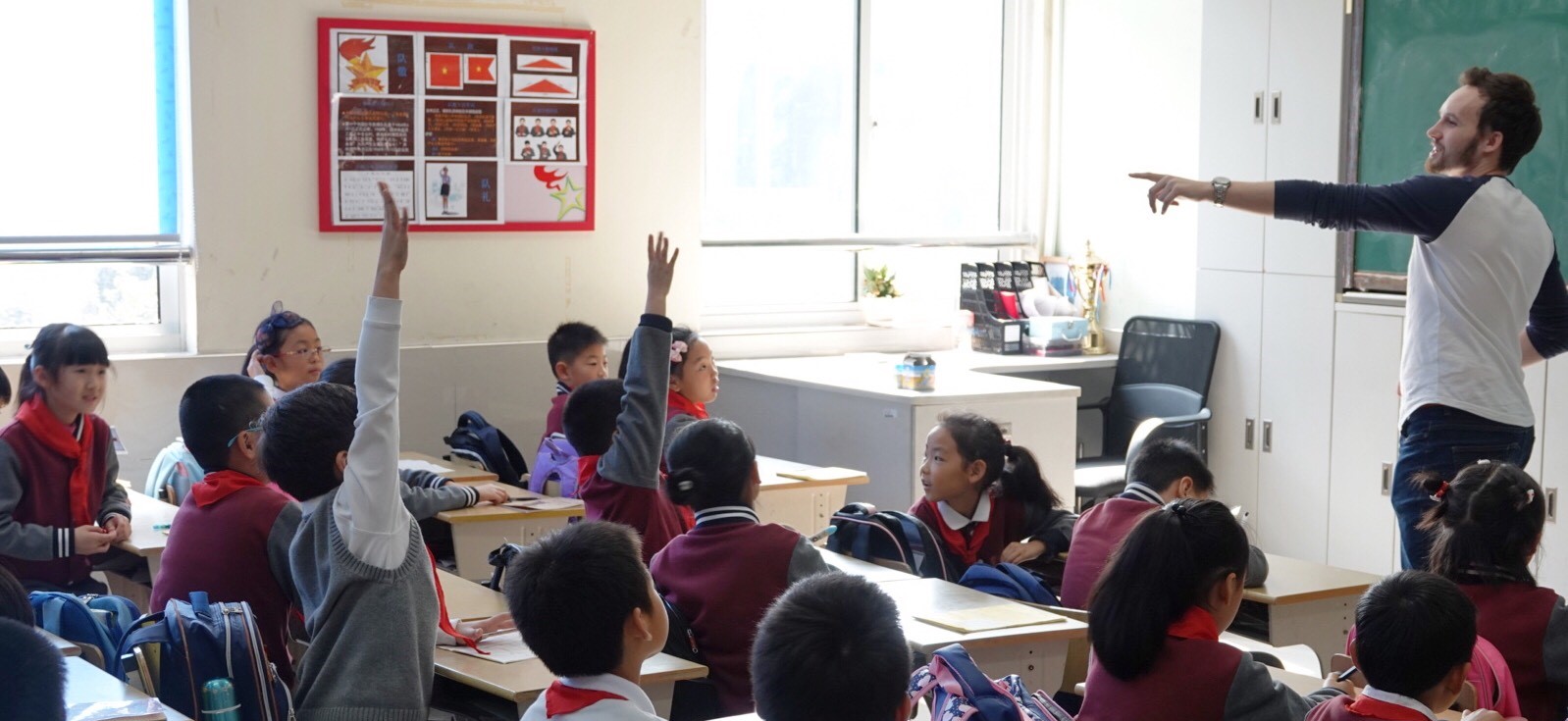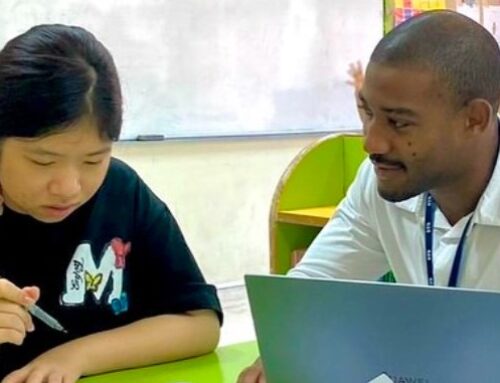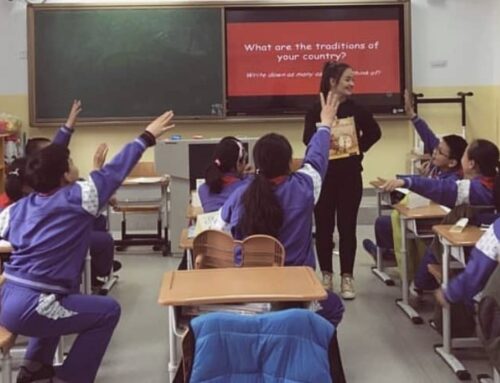The most important factor as to whether or not students are engaged with your subject is, in my opinion, their relationship with you, their teacher. It can be hard to get a good balance, and we know that feeling on the first day when you’re deliberating what kind of teacher you want to be: strict, friendly, firm?
We’ve put together some of the ways we think you can create positive relationships in your classroom, and get the best out of each one of your students.
Restorative Approaches
One of the most important mottos of my teaching career: each lesson is a clean slate. For you, for the students, for everyone. It is important that each of your students feel that there won’t be any grudges, or extra homework, as a result of a bad lesson on their behalf. The best way to ensure they know this is to have a brief discussion with them either at the end of the lesson or the end of the day.
In these restorative conversations, I like to ask the student where they think the lesson went wrong for them – this allows them to reflect on what the potential cause of their behaviour might be, did it get triggered by something? Did they feel uncomfortable about something? It really could be anything. This process also helps the child take accountability for their actions, and it offers a reasoning point to refer back to if the behaviour persists, this might sound something like ‘Do you remember what we said in our conversation last week? We agreed that…’. I usually end a restorative conversation by reminding the student that the next lesson is a new start and a chance for us both to put our best foot forward, no hard feelings.
This whole process reminds your student that they are capable of behaving in a more constructive way, as well as that you believe they can be better in the next lesson. Otherwise you can fall into some kind of self-fulfilling prophecy, and you lose the respect of that student.
What Happened Yesterday?
 Everyone has bad days, in fact, one of the biggest struggles I find with teaching is putting on a happy face when I’m not feeling 100%. Your students will also be dealing with things that they find challenging – that could be anything from falling out with friends to something more sinister.
Everyone has bad days, in fact, one of the biggest struggles I find with teaching is putting on a happy face when I’m not feeling 100%. Your students will also be dealing with things that they find challenging – that could be anything from falling out with friends to something more sinister.
If a child is behaving in a way that is disrupting your lesson or upsetting other students, especially if it’s out of character, think about what might be causing them to act that way. I like to ask the students to have a quick chat, where I might ask if everything is going well at school/home or if there is anything I can help with. This not only is important for child safeguarding, but it also forms positive relationships as the child begins to understand that you are trying to help. A one-on-one conversation like this can also humanise you a little bit to the student, as you can often reassure them with a story about a bad day you had and how you got through it. The child then, hopefully, feels inspired and might open up about an issue they’re having with a classmate, etc. Don’t ever assume that a child is misbehaving because it’s just how they are, try and think about what they might be going through or what stresses might be causing them to act a certain way – we’re all human.
Praise vs Punishment
There is an overwhelming amount of literature on the subject of praise vs punishment in the classroom, and then within that if it should be positive or normative reinforcement, and it only gets more niche from there. I can’t make any claims that will blow all the other theories out the water, but I’m going to talk about what has worked best for me in my classrooms.
Firstly, avoid punishment where praise is possible. If there is one student not doing the sheet you handed out, praise the students that are doing the sheet before doing a targeted drop-in and trying to help your rogue student get started on the sheet. If they’re reluctant to get started it’s easy to dismiss the child as lazy, but that is rarely the case, as there are often other factors being masked by this attitude – perhaps the work isn’t accessible to them, or they are tired from not being able to sleep the night before, or any number of other reasons. If the student is still being uncooperative, try verbally modelling an answer. If the student is still being uncooperative, make sure they know they will be staying behind to get the work finished, or whatever you might think is a productive way for them to work through the task. I always like to explain that it’s not really a punishment, but rather just a way to check-in with them and make sure they don’t fall behind. Students normally respect this, and are keen to show you that they can improve in your next class.

Confidence is Key
I’ve hinted at it a couple times already: an important factor in positive relationships is respect. For you to have a positive relationship with the students in your class, they need to respect you and your decision-making. A common pitfall of new teachers is getting into a tug-of-war with your students if they’re upset about a punishment they’re received, but engaging with these discussions can only really end with you backing down and moving on – not the best method. Instead, nip any comments like this in the bud before they get out of hand, I often use ‘Look, I know you’re not happy, I’ve noted that, but this is what’s happening. Let’s get through the rest of the lesson and we can talk about it after.’ Dealing with situations like this that could arise will come naturally with experience and, more importantly, confidence.
Don’t question your own decisions just because you’ve been called out by a student. You have made an informed decision and it’s important you stick to it. However, also don’t be afraid to apologise if you’ve made a mistake. Everyone makes mistakes, but it’s the confidence you handle the mistake with that makes the difference. Remember what I said earlier, everyone’s human!
Feeling Prepared?
There are also countless other ways you can create and maintain positive relationships in your classroom, but these are some of the main things that I think about every teaching day. It’s easy to get into a mindset where you expect trouble from that one kid that can be a bit loud, but you’ll find one day he comes in and listens perfectly, probably because of how well you dealt with the situation in the past.
The main thing to take away from this: restore, consider the student, praise and be confident – it really is that simple! Well, we know it’s easier said than done but it does get easier with every lesson you teach, so get stuck in.
Ready to head over to your dream ESL destination? Explore our programs in Vietnam, Thailand, China, Cambodia or Poland .
About the author





